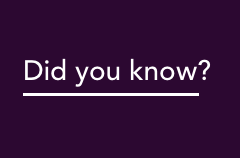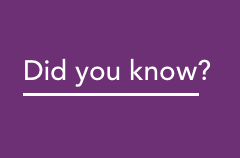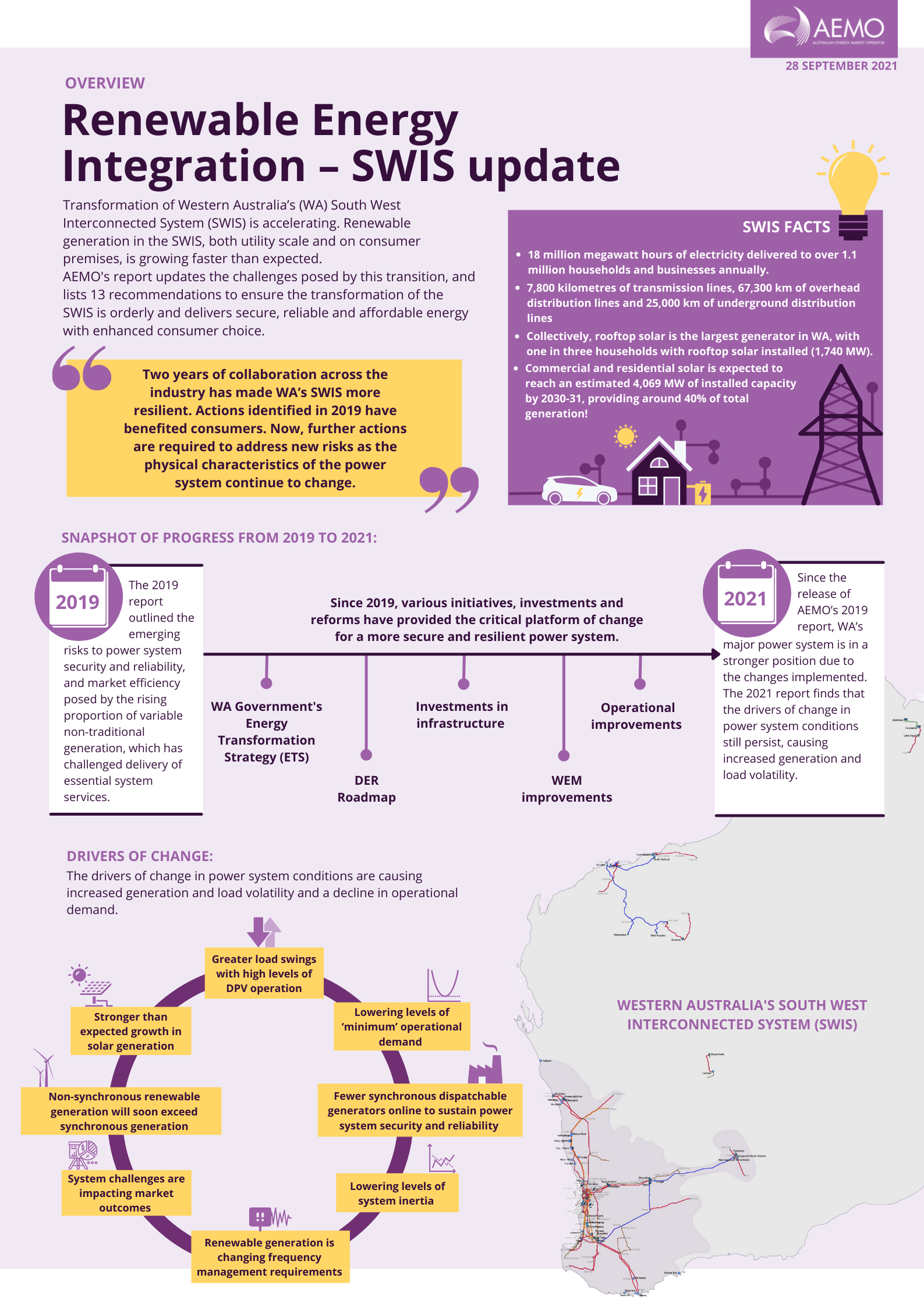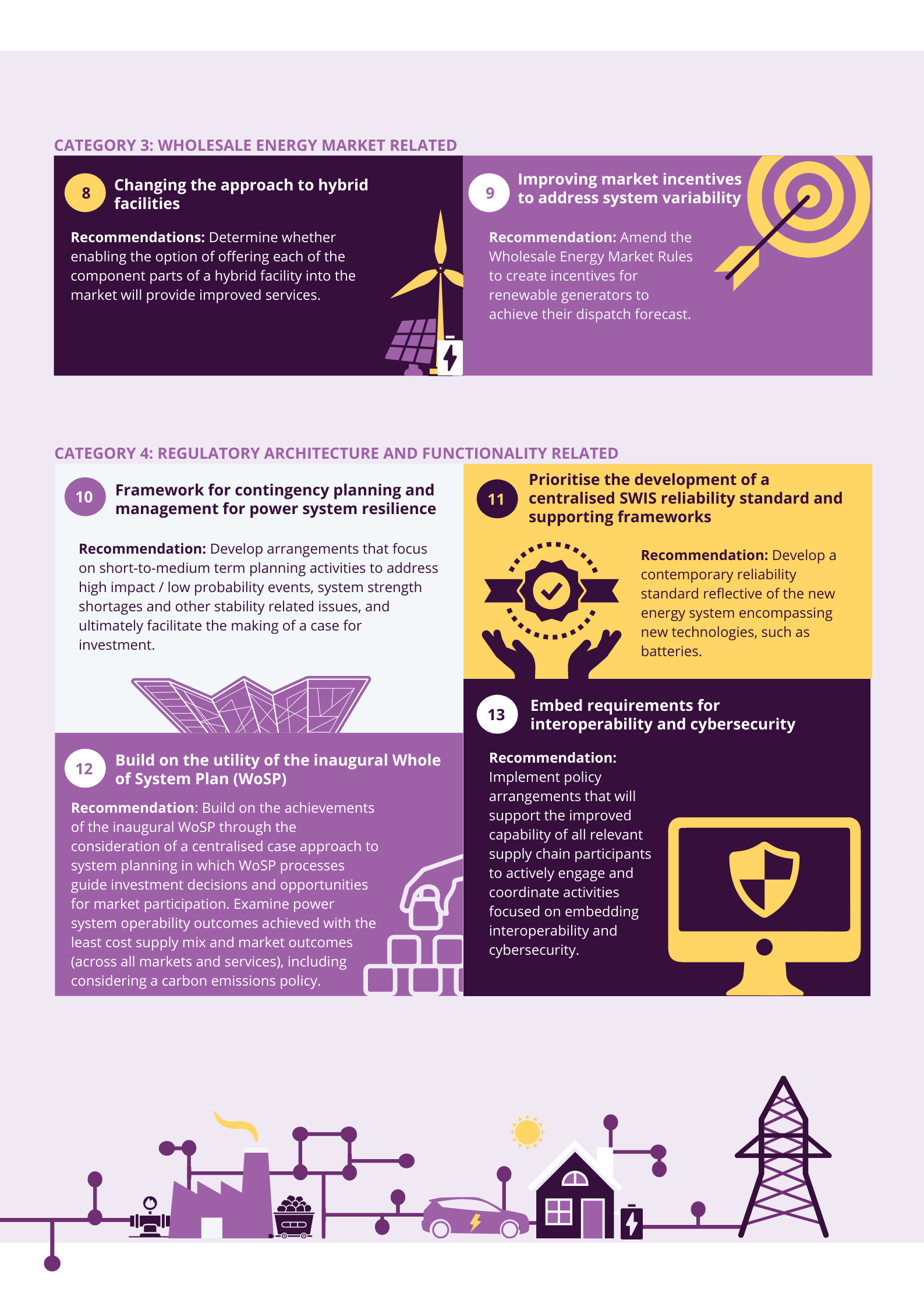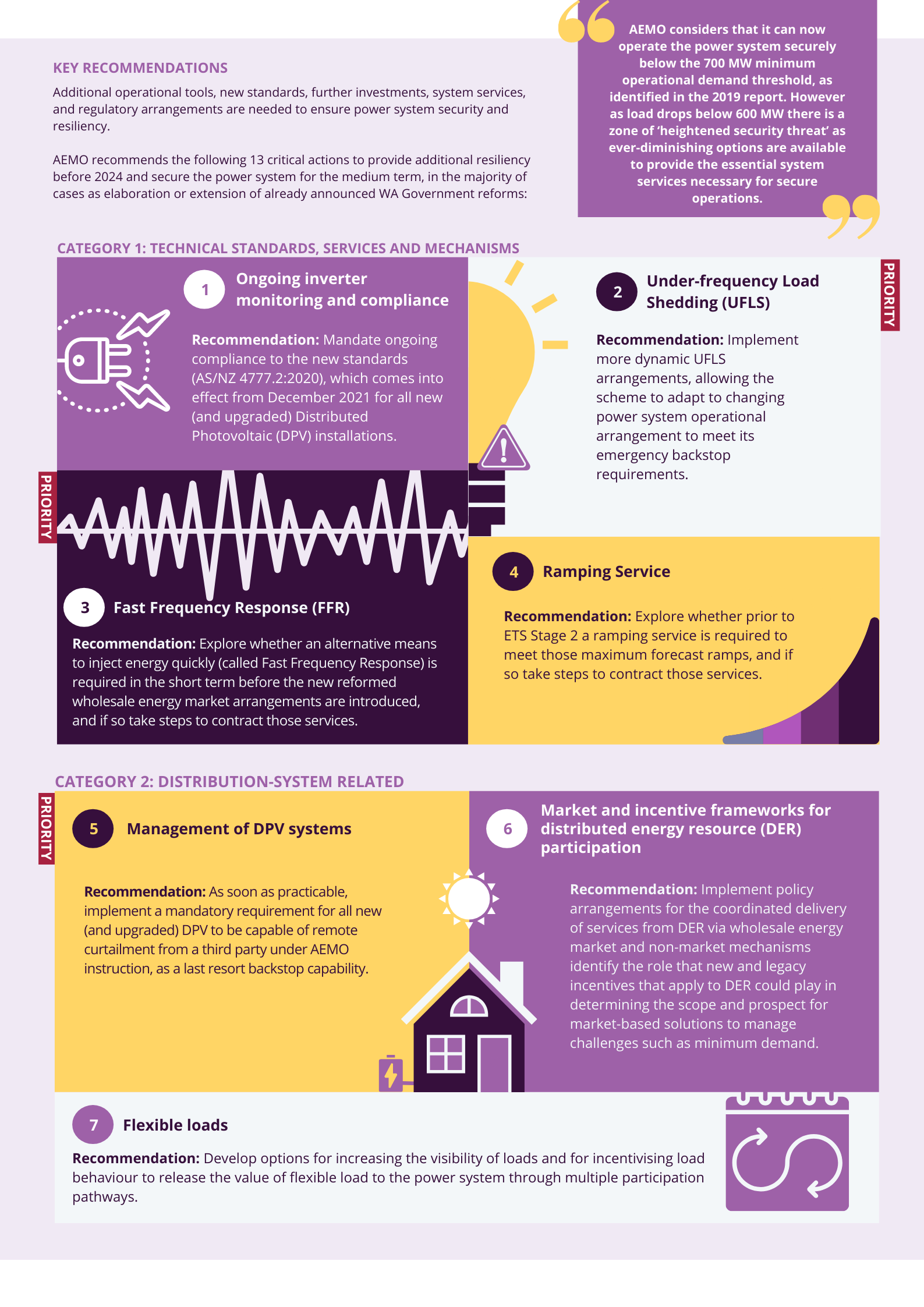Today, the Australian Energy Market Operator (AEMO) released a report showing that two years of strong industry collaboration has improved the security of Western Australia’s (WA) South West Integrated System (SWIS), however, further actions are needed as the power system transformation accelerates.
AEMO’s Renewable Energy Integration – SWIS update report, updates the status of system security risks outlined in the 2019 Integrating utility-scale renewables and distributed energy resources in the SWIS report. It also assesses the expected outlook of power system and market challenges, identifying 13 recommendations to ensure secure power system operations for the foreseeable future.
AEMO CEO, Daniel Westerman, said: “Since the release of AEMO’s 2019 report, WA’s major power system is in a stronger position due to in-depth industry collaboration, infrastructure investment, and implementation of the WA Government’s Energy Transformation Strategy.
“Actions taken by Energy Policy WA, AEMO, Western Power and the broader industry have added significant resilience to the power system, including operating the power system at levels of operational demand below the original indicative 700 megawatt threshold,” he said.
The 2021 report confirms the 2019 report’s fundamental positions. Namely, that drivers of change in power system conditions are causing increased generation and load volatility, rooftop solar continues to be installed at record rates and thereby displacing traditional generation resources, and there are greater spreads of wholesale market balancing prices that are reaching lower negatives prices more frequently.
Already, total renewable generation is meeting up to 70% of total energy demand in the SWIS, 56% by rooftop solar, in particular time intervals. AEMO expects this to continue growing with installed rooftop solar capacity to virtually double in the next decade.
“The energy-sector transformation in WA continues to increase variability and dynamic power system operating conditions, requiring collaborative effort to ensure consumers continue to benefit from secure, reliable, affordable and sustainable energy,” he said.
Analysis now indicates that the timeframe in which AEMO may no longer be able to operate the SWIS securely, in all periods, has been deferred to 2024. AEMO has identified a number of actions to provide greater resilience to extreme events in the short term as well as recommendations that would enhance the WA Government’s announced reforms to address emerging challenges over the medium term.
“As part of AEMO’s recommendations, additional operational tools, new standards, system services, and regulatory arrangements are needed to address priority actions that will provide increased resiliency to the power system beyond 2024,” said Mr Westerman.
“Important reforms such as Stage 1 and 2 of the WA Government’s Energy Transformation Strategy will help to manage these risks, delivering essential system services.
“Our focus, alongside our industry partners, is on the role of consumers and new technologies and their interactions with the power system and the market, as we work with policy makers and the energy industry to ensure the power system continues to operate securely and cost-effectively for all West Australians,” he said.
In the report, AEMO recommends the following actions to address the challenges and harness the opportunities presented:

